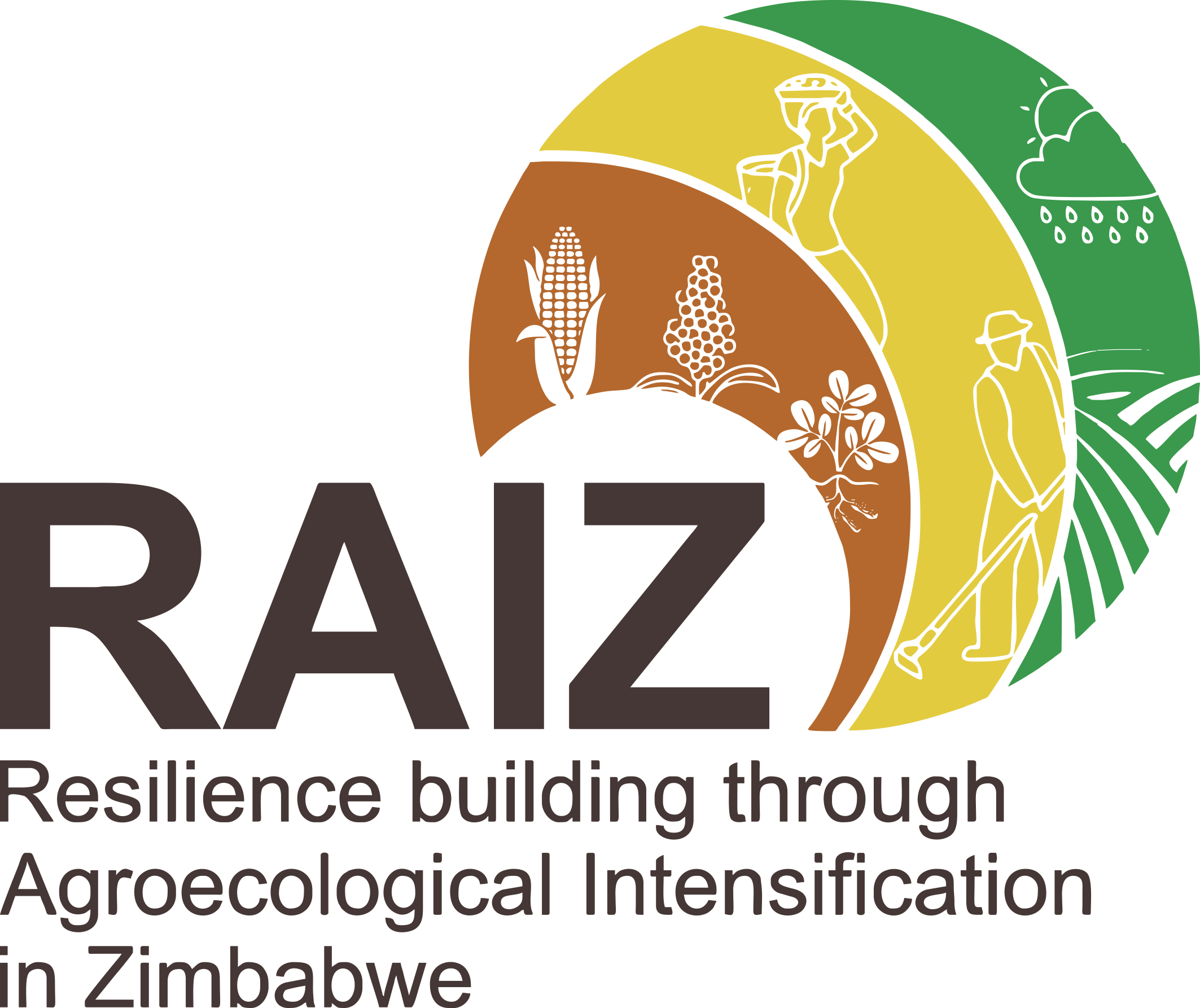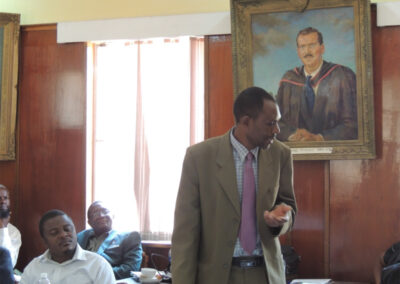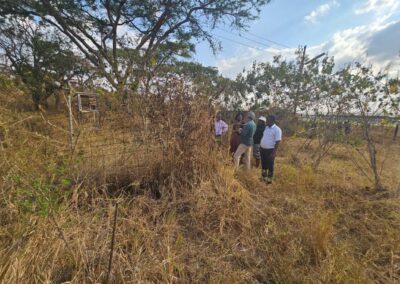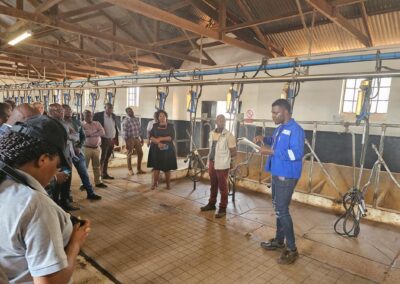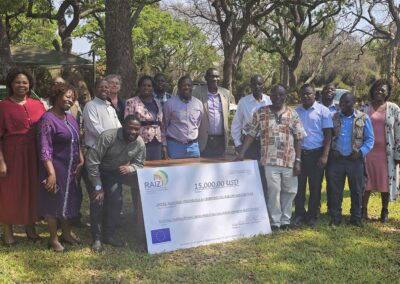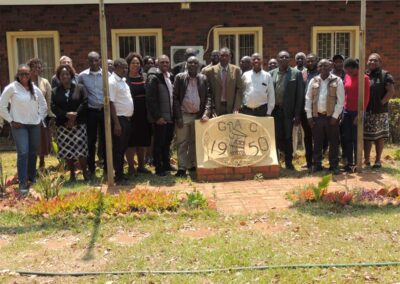13-14 September 2023, Harare – RAIZ project organized the workshop “Diagnostics of Agricultural Colleges Curricula” in Harare, Zimbabwe, from 13-14 September 2023 with the assistance of the European Union. Invaluable administrative and operational support was provided by the CIRAD Country Office in Zimbabwe and Implementing Partners – University of Zimbabwe and CIMMYT.
Twenty-seven participants from MoLAWFRD (Department of Agriculture Education); University of Zimbabwe; CIMMYT; CIRAD; Gwebi College; Chibhero College; Kushinga/Phikelela College; Fambidzanai Permaculture Trust; DAEOs (Murehwa & Mutoko) attended this workshop to provide their views and positions on how agroecology has/or not been mainstreamed in the training of agricultural sector personnel in colleges. During the workshop, the attendees were enabled an opportunity to go through selected courses in-depth and make an assessment of whether agroecology aspects are embedded in the curricula modules. Each College of Agriculture also had an opportunity to explain a bit on their specialisations and partners and how these are impacting on innovations. Additionally, Fambidzanai Permaculture Trust, which is a Non-Governmental Organisation (NGO) and providing certified training at certificate and diploma level on agroecology, made a presentation on their modules and attendees had an opportunity to analyse and compare with what colleges of agriculture are offering in terms on agroecology.
This was also an opportunity for the RAIZ Project to cement their support on research especially at lower levels of agricultural colleges for students. The selected colleges presented fifteen (15) students that would receive financial support (of USD $1000.00 each) for their research project. It was then agreed that the RAIZ Project would just fit in on what the agricultural colleges are already doing – as each final year student is required to undertake a research project. Therefore, the beneficiary students are to present their proposals and final findings to many other stakeholders and the RAIZ Project team. Essentially, the research grants are meant to facilitate the research of the students so that they we reduce the challenges students face in implementing their research.
